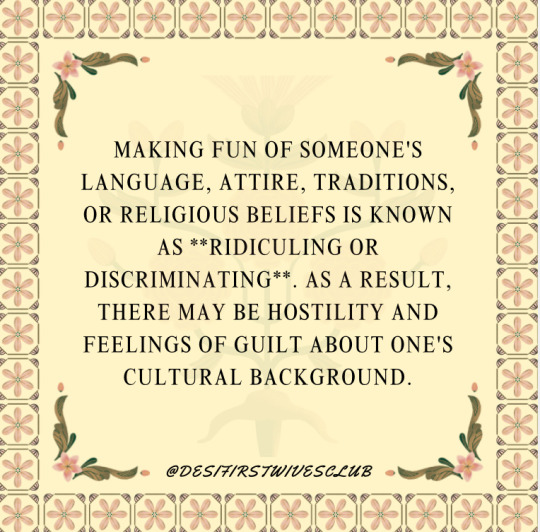A safe speace where all the Desi Wives can come together to share our stories, our pain and our laughter without judgement.
Don't wanna be here? Send us removal request.
Text

#DesiFirstWivesClub #DivorcedDesi #FirstWives #SouthAsian #Diaspora
0 notes
Text

#DesiFirstWivesClub #DivorcedDesi #SouthAsian #Diaspora #DivorceIsOk
0 notes
Text
✨ Don’t lose your shimmer ✨ Keep shining bright, no matter what! 🌟 #DesiFirstWivesClub #DivorcedDesi #SouthAsian #Diaspora #StaySparkling #KeepShining
0 notes
Text


Do not ignore the red flags, especially when the red flag could be you. #DesiFirstWivesClub #DivorcedDesi #DivorceIsOk #SouthAsian #Diaspora
0 notes
Text

The only loss is to lose yourself. #DesiFirstWivesClub #DivorcedDesi #SouthAsian #Diaspora #DivorceIsOk
0 notes
Text

Your feelings are valid. Your pain is valid. Your story is valid. 💙
#DesiFiratWivesClub #DivorceIsOK #DivorcedDesi #MentalHealthMatters #YourStoryMatters #YouAreNotAlone
0 notes
Text

🚩Red flags are your intuition waving for attention. Don't ignore them—trust your gut and protect your peace. 🚩
#DesiFirstWivesClub #DivorcedDesi DivorceIsOK #SouthAsian #Diaspora Desi #ListenToYourGut #RedFlags #SelfRespect
0 notes
Text

Good vibes, good deeds, good karma. What goes around, comes around.
#DesiFirstWivesClub #DivorcedDesi #DivorceIsOK #Diaspora #SouthAsian #KarmaVibes #PositiveEnergy
0 notes
Text
Respect diversity, celebrate differences, and remember: every culture deserves dignity and respect. ✊❤️
#DesiFirstWivesClub #DivorcedDesi #SouthAsian #Diaspor #CultureMatters #RespectAllCultures #CulturalAwareness #StopCulturalAbuse





0 notes
Text

"Never forget the power you hold within. Even in the toughest moments, your strength is your greatest asset. 💪✨ #DesiFirstWivesClub #DivorcedDesi #SouthAsian #InnerStrength #StayStrong #EmpowerYourself #Resilience #BelieveInYou"
0 notes






